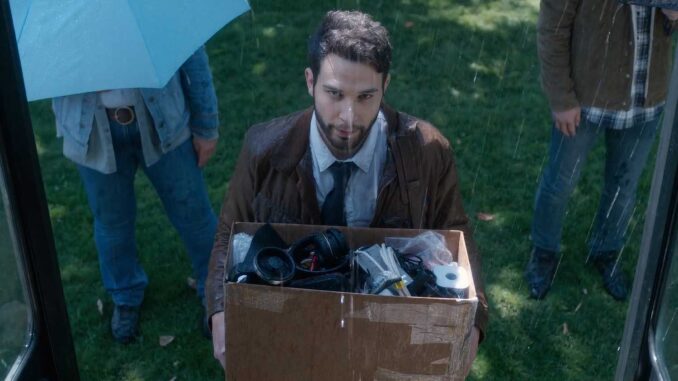
So Help Me Todd's Cancellation Was Heartbreaking, But CBS Proves It Made the Right Call
The gavel has fallen on "So Help Me Todd," a show that, for its two seasons, charmed audiences with its quirky premise, witty banter, and undeniable heart. The cancellation was undoubtedly heartbreaking for its dedicated fanbase, a community that embraced the unconventional mother-son dynamic and the often-absurd cases that unfolded within the Wright & Wright law firm. However, beneath the surface of grief and the chorus of disappointed cries, lies a pragmatic truth: CBS's decision, while emotionally jarring, was likely the right one. While the show possessed undeniable charm and untapped potential, the realities of network television, particularly in the current media landscape, paint a picture of a show that, despite its merits, struggled to justify its place within CBS's broader strategic vision.
The initial allure of "So Help Me Todd" was undeniable. The premise, pairing a meticulous, high-powered lawyer mother, Margaret, with her charming but directionless private investigator son, Todd, provided a fertile ground for comedic and dramatic conflict. The chemistry between Marcia Gay Harden and Skylar Astin was electric, their performances breathing life into characters who, despite their flaws, were deeply relatable. The show skillfully balanced the procedural elements of legal dramas with the warmth and humor of family sitcoms. Each episode presented a unique case, allowing Todd to flex his unconventional investigative skills while Margaret grappled with the ethical complexities of the legal world. This blended approach garnered a loyal following, drawn to the show's lightheartedness and genuinely engaging mysteries.
However, loyalty doesn't always translate to ratings, and ratings are the lifeblood of network television. While "So Help Me Todd" enjoyed a dedicated viewership, its performance ultimately failed to reach the heights necessary to secure its future on CBS. In a landscape increasingly dominated by streaming services and on-demand content, broadcast networks are under immense pressure to deliver consistently strong numbers. The show's ratings, while decent, never quite crossed the threshold into "must-see TV" territory. This struggle to capture a broader audience, especially amidst fierce competition from other network programs, placed "So Help Me Todd" on increasingly shaky ground.
Furthermore, CBS's strategic shift towards more established procedurals and crime dramas likely played a significant role in the show's demise. CBS is known for its reliable and high-performing franchises like "NCIS," "FBI," and "Blue Bloods." These shows boast established fan bases, proven track records, and the potential for spin-offs and syndication. "So Help Me Todd," with its comparatively niche appeal and reliance on character-driven storylines, simply didn't fit neatly into this pre-existing formula. The network's investment in maintaining these successful franchises, coupled with its exploration of new but similarly formatted shows, left limited room for a show that, while enjoyable, represented a departure from its core brand.
Moreover, the changing economics of television production cannot be ignored. Producing a network television show, even one that isn't heavily reliant on special effects, is an expensive endeavor. Location filming, talented actors, skilled writers, and a dedicated crew all contribute to the substantial costs associated with bringing a show to life. If a show isn't consistently delivering strong viewership, the financial justification for continuing production diminishes rapidly. It's likely that CBS weighed the cost of producing "So Help Me Todd" against its potential return on investment and concluded that the resources could be better allocated to other projects.
While the cancellation is undeniably disappointing, it's important to acknowledge the business realities that underpin these decisions. CBS is a corporation driven by profit, and its primary responsibility is to its shareholders. Sentimentality, while understandable from a fan perspective, simply cannot trump the need for financial viability. In the face of declining ratings, shifting strategic priorities, and the ever-increasing cost of television production, the network ultimately had to make a tough but ultimately pragmatic choice.
In conclusion, the cancellation of "So Help Me Todd" was a blow to its passionate fanbase, a community that cherished the show's unique blend of humor, heart, and unconventional storytelling. However, a closer examination of the network television landscape, CBS's strategic priorities, and the economics of production reveals a more nuanced picture. While the show possessed undeniable charm and untapped potential, it ultimately struggled to meet the performance expectations required to secure its future. While heartbreak is a valid response to a beloved show's demise, acknowledging the pragmatic realities behind CBS's decision ultimately allows for a more comprehensive and balanced understanding of the forces at play in the cutthroat world of network television. The gavel may have fallen, but the memories and the joy that "So Help Me Todd" brought to its viewers will undoubtedly endure.
